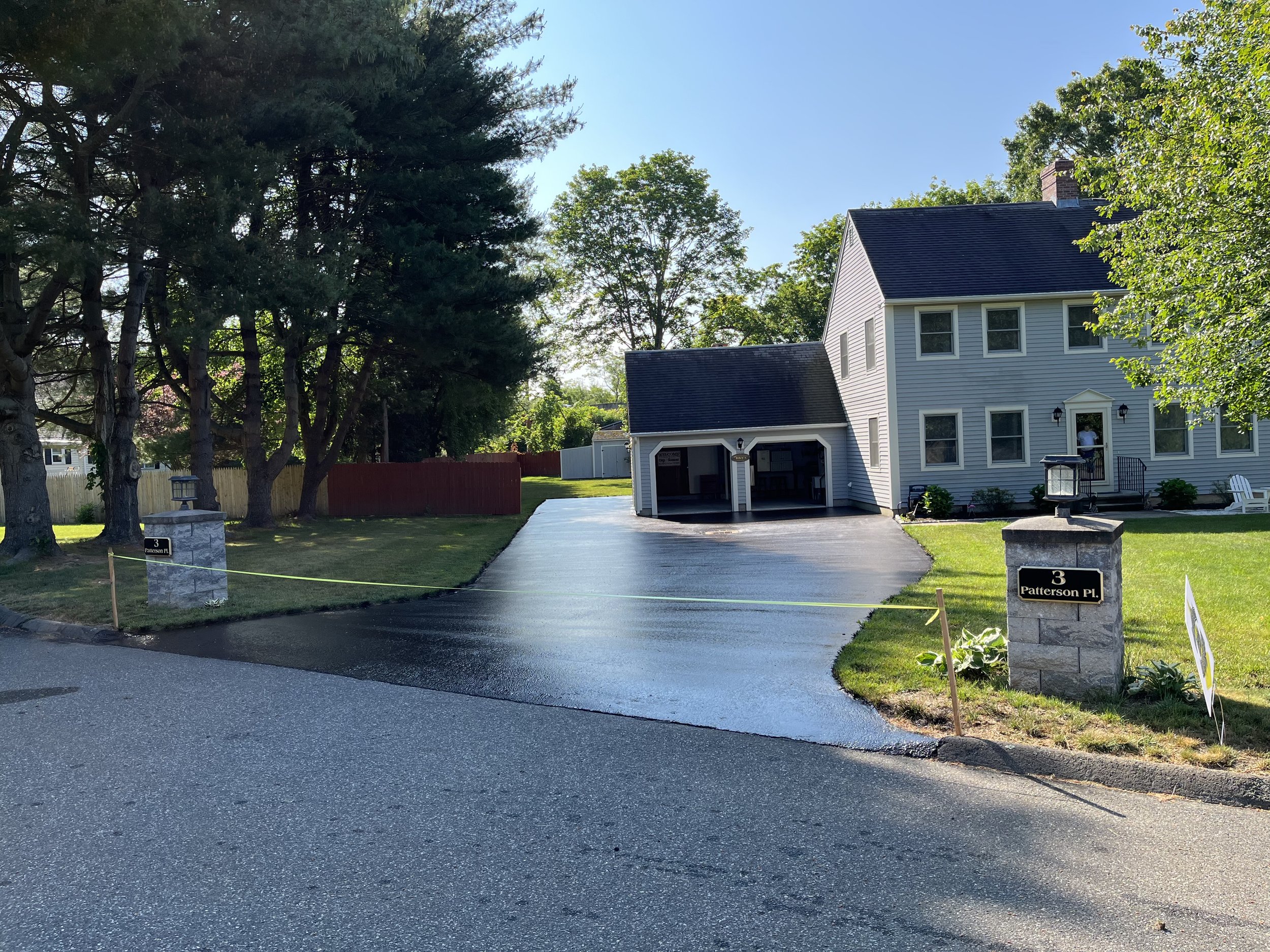Improve Durability with Cold Mix Asphalt: Expert Sealing Solutions
Cold Mix Asphalt Vs. Hot Mix Asphalt: Which Is Right for You?

Structure Distinctions
Cold mix and warm mix asphalts vary considerably in their composition, with unique characteristics that influence their efficiency and applications. Cold mix asphalt is generated by emulsifying the asphalt binder with water and an emulsifying representative prior to mixing it with aggregate. This technique enables the asphalt to be practical at reduced temperature levels, making it ideal for short-lived repairs and for usage in colder weather. Hot mix asphalt, on the various other hand, is manufactured at heats, normally in between 300-350 ° F, which helps to attain better compaction and a much more long lasting end product. The warm mix asphalt production process involves heating the aggregate and asphalt binder independently prior to integrating them at the asphalt plant.
Furthermore, cold mix asphalt has a tendency to be less thick and a lot more flexible than warm mix asphalt. This adaptability makes it far better fit for locations with greater degrees of activity, such as driveways or roadways with heavy traffic. In contrast, hot mix asphalt is known for its high durability and resistance to rutting and breaking, making it a recommended option for freeways and high-traffic roads where durability is critical.
Setup Process Variations
The procedure of installing chilly mix and hot mix asphalt displays notable variations in their requirements and procedures. Cold mix asphalt, being an extra versatile material, can be used straight from the bag or container onto the pocket or damaged location. It needs marginal preparation work, such as cleaning up the area and condensing the cool combine with hand devices. This makes it a practical alternative for short-lived and fast repairs. On the other hand, warm mix asphalt necessitates a much more intricate setup process. It includes heating up the combination to heats prior to laying it down on a correctly prepared base. The prep work includes condensing the base, applying a tack coat, and making use of hefty machinery like pavers and compactors for a long lasting and smooth surface. Due to the heating demands, hot mix asphalt setups are normally accomplished by professionals with specialized equipment, making sure an extra structurally sound and irreversible outcome.
Toughness and Long Life Elements
When thinking about asphalt options, resilience and durability are vital aspects to evaluate for lasting pavement efficiency. Warm Website mix asphalt (HMA) is recognized for its remarkable durability and durability.
In terms of longevity, HMA commonly outshines CMA due to its superior toughness and resistance residential properties. HMA pavements have a longer service life, requiring much less frequent repair services and upkeep, which can convert to set you back savings in the lengthy run. Furthermore, HMA pavements are more easily customizable to satisfy details project requirements, further enhancing their sturdiness.
Expense Considerations
Taking into consideration the monetary effects is a critical element when assessing the choice in between warm mix asphalt (HMA) and cool mix asphalt (CMA) for pavement jobs. While the first cost of hot mix asphalt is typically higher than that of cold mix asphalt, HMA frequently offers a more cost-efficient solution in the long run due to its remarkable resilience and long imp source life.
In enhancement to product prices, it's crucial to think about the costs linked with setup and upkeep when contrasting HMA and CMA. Ultimately, the choice in between HMA and CMA ought to take right into account not simply the preliminary cost but additionally the long-term monetary implications to figure out the most cost-effective option additional reading for the certain pavement task.
Environmental Effect Comparison
Contrast of the environmental influences between warm mix asphalt (HMA) and chilly mix asphalt (CMA) discloses distinct distinctions in sustainability techniques. HMA manufacturing requires heats, causing boosted power intake and greenhouse gas exhausts. The process also releases unpredictable organic compounds (VOCs) and unsafe air contaminants (HAPs) right into the environment. In contrast, CMA is generated and applied at reduced temperatures, minimizing energy usage and emissions substantially. The lower production temperatures of CMA lead to decreased fuel intake and lower levels of CO2 exhausts, making it a more eco-friendly alternative.
Moreover, the use of CMA frequently involves recycling existing asphalt sidewalk, advertising resource preservation and lowering the amount of waste sent to land fills. By deciding for CMA over HMA, roadway building and construction jobs can add favorably to environmental preservation initiatives.
Verdict
To conclude, the choice in between cool mix asphalt (CMA) and warm mix asphalt (HMA) depends on different variables such as make-up, installment procedure, sturdiness, longevity, expense, and environmental influence. cold mix asphalt. While CMA supplies a economical and fast option for minor fixings, HMA makes sure exceptional resilience and durability for hefty website traffic locations. Consider these elements meticulously to determine which sort of asphalt is the ideal option for your paving requires

Considering the monetary ramifications is a critical facet when reviewing the choice between hot mix asphalt (HMA) and cool mix asphalt (CMA) for pavement tasks. While the preliminary price of warm mix asphalt is normally greater than that of cold mix asphalt, HMA commonly supplies an extra affordable solution in the long run due to its superior longevity and durability. asphalt patch repair.Comparison of the ecological impacts in between warm mix asphalt (HMA) and chilly mix asphalt (CMA) discloses unique distinctions in sustainability methods.In final thought, the selection in between cool mix asphalt (CMA) and hot mix asphalt (HMA) depends on various factors such as structure, setup procedure, sturdiness, longevity, cost, and ecological effect